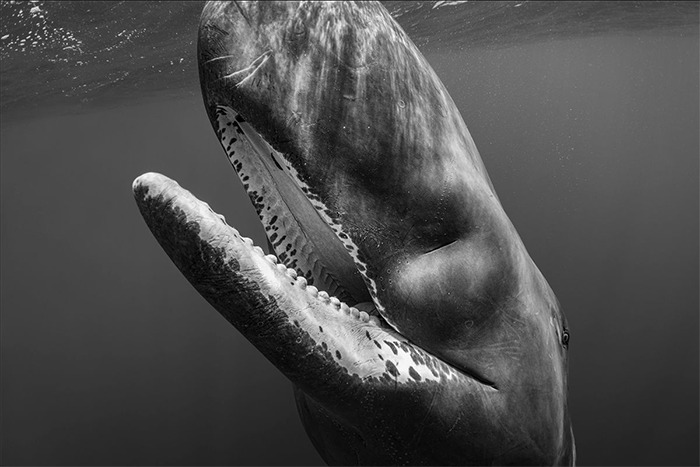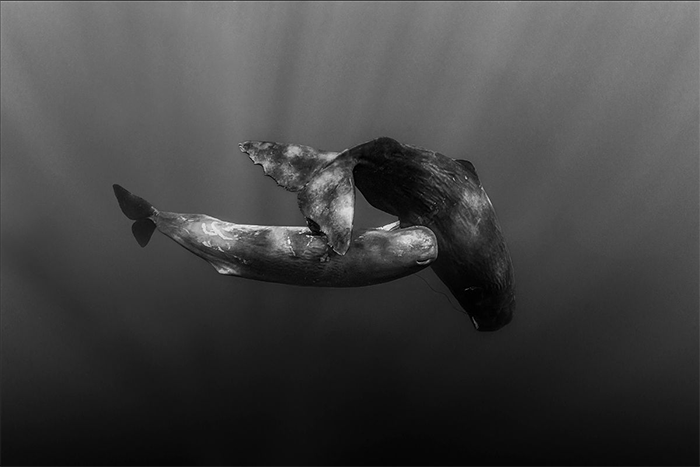Paul Nicklen: Whales and What Nature Really Gives Us
This is a guest blog post by WWSG exclusive thought leader, Paul Nicklen.

“Those who contemplate the beauty of the earth find reserves of strength that will endure as long as life lasts.” –Rachel Carson
When my parents chose to move our small family from Saskatchewan to the remote Arctic and undertake the biggest adventure of our lives, we had to let go of certain comforts. Both my mother and father came from farming families and inherited the unyielding work ethic that serves as the backbone of Canada’s heartland. Still, we found joy in the simple pleasures afforded by society—easy access to family, mild summer evenings, and the predictable cycles of the seasons. Uprooting to the Arctic meant trading the familiar for the unknown, but I quickly found that the benefits of living closer to nature far exceeded what we left behind.
Since those early years, the best gifts in my life have always come from nature. After I chose to become a photographer, I used my camera to get even closer to our wild kin. Wolves, penguins, lynx, sharks, and even the more elusive animals like spirit bears all became subjects of my lens. In my eyes, there is no greater privilege than living each day on a planet overflowing with more species and beauty than we could ever fully grasp. Of all the encounters I have shared with wildlife around the world, my experiences with whales, the true giants of Earth, have been some of the greatest gifts.


Like the Arctic wildlife I grew up with, such as wolves and polar bears, creatures like orcas and sperm whales inspire a mix of fear and awe in people. Despite their size and status as some of the ocean’s greatest hunters, there is no definitive record of orcas or sperm whales ever killing anyone. In fact, my own experiences have revealed their gentle nature and deep intelligence—a side that often goes unnoticed beneath the myths and misconceptions.


Sperm whales, in particular, have garnered a reputation fueled in part by works of fiction, stories, and legends. Of all my encounters with whales, however, swimming with a pod off the coast of Dominica proved to be one of the most wholesome and eye-opening experiences of my life. Free-diving with a snorkel, I was able to get fairly close to a group dozing vertically in the water column. Sperm whales spend most of their time deep below the surface until they finally come up to breathe and rest, suspended with their heads pointed skyward.
The shoot was going well, with the matriarch and her group fully aware and comfortable with my presence. However, as I drifted up to catch my breath, I suddenly caught the attention of the youngest member in the group—a little calf affectionately dubbed “Ariel” by locals.

Evidently bored from napping with her mom, Ariel made a beeline straight for me, and I suddenly found myself staring down a 20-foot baby whale charging at full speed. I braced myself as she opened her thankfully toothless mouth, and the next thing I knew, she was happily gumming my camera housing like an overgrown toddler. Years of experience around large, unpredictable wildlife allowed me to calmly backtrack until I could take a breath. Far from the sea monster that haunted Captain Ahab and his crew, Ariel was a bubbly, curious, and surprisingly gentle little whale.

Looking back on my life, I realize that those early years of following in the footsteps of bears and foxes gave me the chance to connect even more deeply with Earth’s wildest creatures—like Ariel and her pod. The more time we spend immersed in nature, the more the world opens up to us with new experiences. Beyond any luxury or comfort that the fast pace of modern society can provide, nature offers us true connection.
And that, I believe, is the greatest gift of all.
With gratitude,

